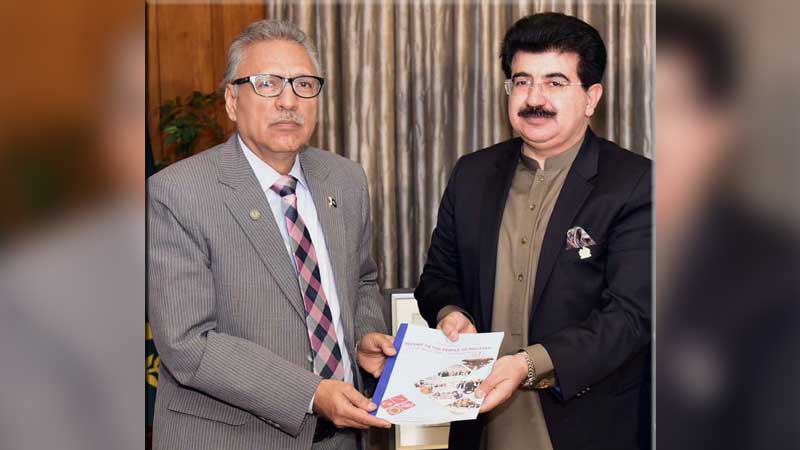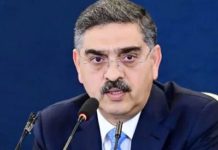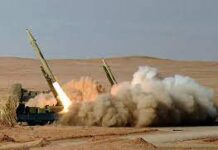
He expressed these views in a meeting with the President Dr Arif Alvi held at President House. This year had witnessed a change in the composition of the House as 50 per cent of those who had taken the oath were new members, he remarked.
“The House posed confidence in me to become the custodian of the House,” he added.
This change was said to be complemented by the completion of the constitutional tenure of National Assembly and a smooth transition of government.
President Dr Arif Alvi appreciated the performance of the Senate and observed it depicted the true scheme of the constitution whereby members of the Upper House had risen above the party lines and legislated, debated and streamlined issues of national public interests.
Briefing the president about the parliamentary year 2018-19, Sanjrani said the Senate met for 13 sessions in the parliamentary year with 111 working days and 78 actual sittings with an average attendance of 64.46 per cent.
As many as 28 bills of private members, 15 government bills and seven ordinances were introduced in the Senate during 2018-19.
The legislative achievements included the legislation on mainstreaming of FATA and PATA; legislation for rights of women, children, transgender persons and migrants and bills pertaining to access to health care, education and interest-free credit.
The executive had also laid before the Senate five different reports by State Bank of Pakistan, Federal Public Service Commission, National Commission on Status of Women, National Commission for Human Rights, a Pilot test of I-voting granted to overseas Pakistanis.
A total of 3681 starred questions were received out of which 3301 were admitted, 111 were disallowed, 269 lapsed while another eight were withdrawn by the members.
In addition to starred questions, a total of 47 un-starred questions were also received.
41 of which were admitted, three were disallowed, three lapsed while another six were withdrawn by the members.
As many as 322 Resolutions were received by the secretariat, out of which 266 resolutions were held admissible while 29 were discarded as inadmissible on technical grounds.
31 Resolutions were passed by the House, whereas, six were dropped because of the absence of the concerned member.
A total of 432 motions under rule 218 were received, out of which 379 were admitted and 16 were disallowed while 37 lapsed. The House discussed 11 of the motions while three were dropped and another four were referred to the committees.
Dr Alvi appreciated the work done by the Senate of Pakistan on legislative fronts as well as its efforts in parliamentary diplomacy.
The Senate of Pakistan was said to have brought together parliamentary leadership to promote peace and development at the forum of Asian Parliamentary Assembly (APA). The APA meetings were held at Gwadar to establish that soon the city would become the hub of trade and economic activities; leaving a positive impact in not only South Asia but the whole region.
Chairman Sanjrani noted that almost after ten years, the special committee on Kashmir had become the parliamentary committee that consisted of members from both Houses. This was said to be a result of the positive response on the Senate Chairman’s request.
Dr Alvi expressed hope that this committee would positively contribute towards streamlining the violations of human rights in the Indian-occupied Kashmir. He wished to view a final settlement of the dispute in line with the UN Resolutions.
Published in Daily Times, March 20th 2019.












